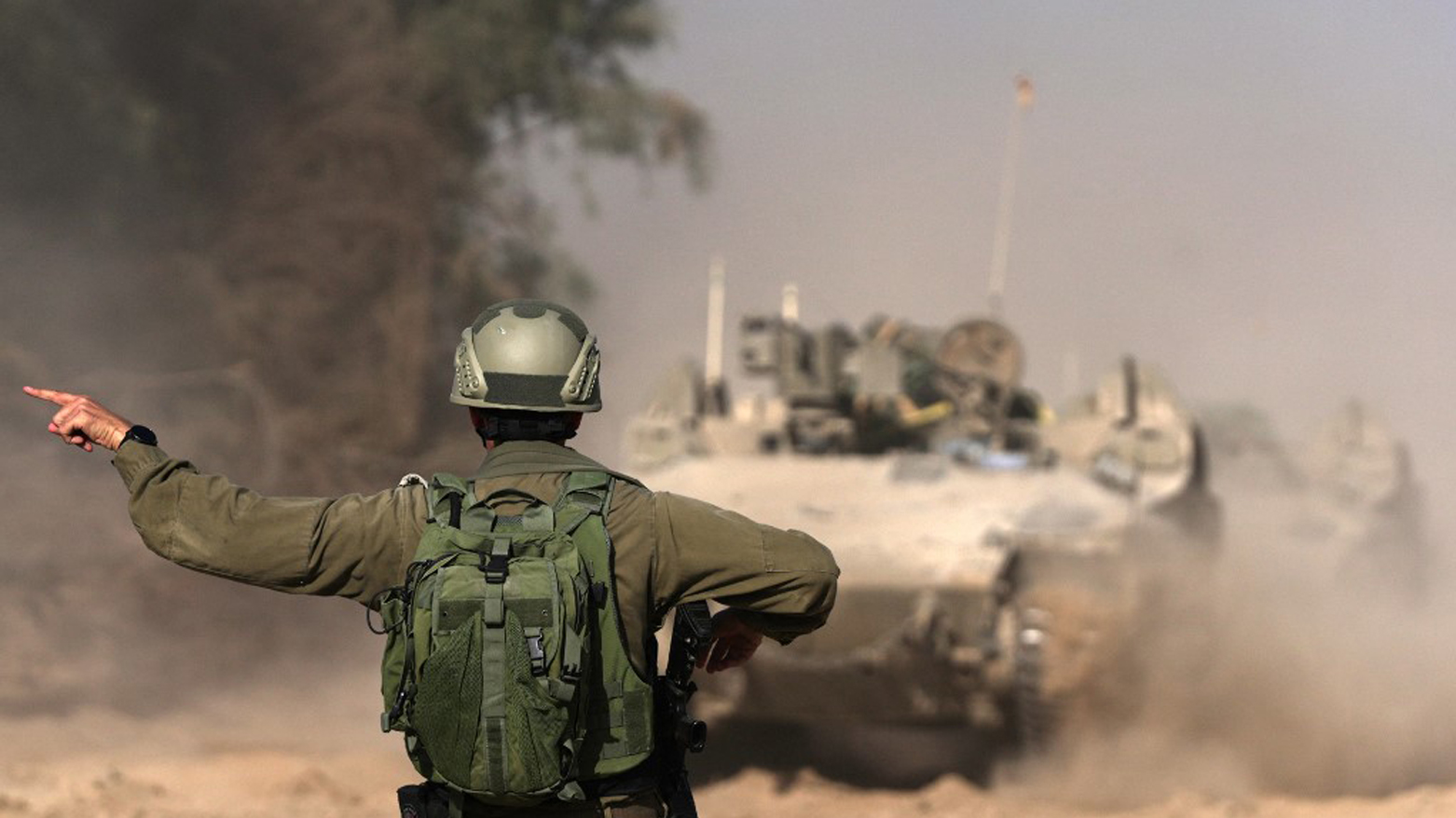US raises pressure on Israel as humanitarian crisis deepens

The United States has given Israel its unequivocal support in its war with Hamas, though it wants its ally not to besiege or reoccupy Gaza, and to mitigate the deepening humanitarian crisis.
Washington has backed Israel's rejection of a ceasefire in the war, and also stands with Israel in its determination to crush Hamas following the horrific October 7 attacks.
Israel launched a withering offensive against Hamas in Gaza after the Palestinian militants staged a brutal raid into Israel that killed more than 1,400 people, mostly civilians.
The Hamas-run health ministry in Gaza says Israel's aerial bombardment and house-to-house ground offensive has killed more than 10,500 people, many of them children.
"Ultimately, the only way to ensure that this crisis never happens again is to begin setting the conditions for durable peace and security, and to frame our diplomatic efforts now with that in mind," US Secretary of State Antony Blinken said Wednesday after a Group of 7 meeting in Japan.
While several countries around the world and UN agencies have called for a ceasefire, the G7 foreign ministers called in their joint statement for "humanitarian pauses and corridors" -- in line with US policy on the conflict.
Speaking to reporters after the G7 foreign ministers' meeting, Blinken also said Gaza should not be used "as a platform for terrorism or other violent attacks".
At the same time, Blinken laid out the United States' clearest boundaries on the war since October 7, telling Israel Washington believes there should be "no forcible displacement of Palestinians from Gaza -– not now, not after the war".
He also said: "No reoccupation of Gaza after the conflict ends. No attempt to blockade or besiege Gaza. No reduction in the territory of Gaza."
His comments appeared to indicate that American officials may be growing more concerned over Israel's conduct of the war -- even as Washington denies that it is seeking to influence its ally on its conduct.
It will also be necessary to "include the Palestinian people's voices and aspirations at the centre of post-crisis governance in Gaza" after the war, and see the territory "unified with the West Bank under the Palestinian Authority", Blinken said.
Two states?
Since the start of the war, the top US diplomat has been on a whirlwind offensive in the region.
Last Sunday he made a surprise visit to Ramallah for talks with President Mahmoud Abbas after visiting Israel on Friday and Jordan on Saturday, as well as Iraq and Turkey.
In Tokyo, Blinken urged "a sustained mechanism for reconstruction in Gaza", which has been devastated by the conflict, and "a pathway to Israelis and Palestinians living side by side in states of their own, with equal measures of security, freedom, opportunity, and dignity".
Blinken's comments contrast with Israeli Prime Minister Benjamin Netanyahu's recent vow that Israel would take "overall security responsibility" of the Gaza Strip for an indefinite period after the war.
Blinken, who arrived in Seoul on Thursday, acknowledged Israel's remarks on security.
"It's also clear that Israel cannot occupy Gaza. Now, the reality is that there may be a need for some transition period at the end of the conflict, but it is imperative that the Palestinian people be central to governance in Gaza and in the West Bank," Blinken said.
But according to him, the Israelis have "no intent to reoccupy Gaza".
Meanwhile, the United States has joined Israel in rejecting calls for a ceasefire, pushing instead for a "humanitarian pauses" to allow aid deliveries, free movement of civilians trapped by the fighting, and the release of hostages held by Hamas.
While Washington is engaged in intense talks with Israeli leaders, with President Joe Biden in daily contact with Netanyahu, the contours of such pauses have yet to be defined.
It is unclear whether they would apply to the whole of the Gaza Strip or just the south of the territory, as the Israeli military focuses its offensive on the north and on Gaza City.
